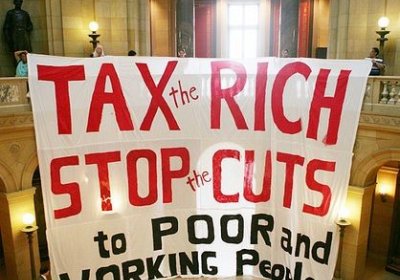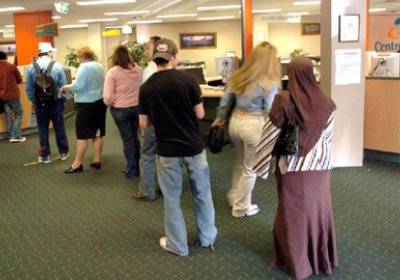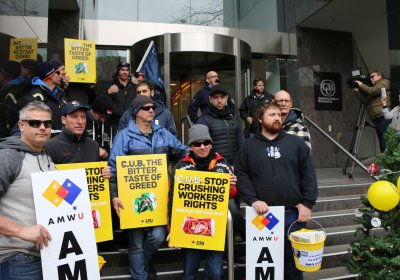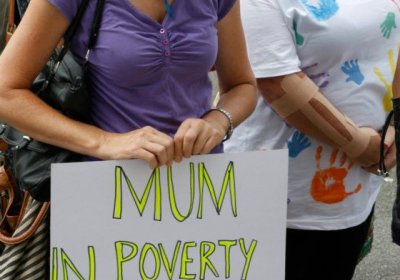This image captured Labor’s class betrayal on July 3, the first day of the new federal parliament, when it voted with the Coalition government for tax cuts for the rich.
Australian Council of Social Service (ACOSS)
From July 1, Prime Minister Scott Morrison will receive a 2% pay rise on top of his already inflated parliamentary salary. Morrison currently earns $538,460 a year and in a few weeks time will earn an additional $10,000 a year. The current base salary for federal MPs and Senators is $207,100.
The federal Coalition government's so-called "tax reform" package is, overall, a major escalation of the capitalist class war by the rich against the poor and working people.
The initial tranche of income tax measures will reduce tax by a very modest amount for low-income taxpayers, but the long-term effect of the package is to massively reduce tax on the wealthy and attack the elements of a progressive taxation system established in this country over many years.
Poverty is everywhere — in cities, towns and the bush across Australia: shivering people sleeping in doorways or cars; ragged people hanging around shopping centres begging for money or food; overstretched private welfare agencies unable to meet the requests for assistance; people turned away from emergency accommodation; and abused women and children turned away from refuges.
But those are only the most visible signs of poverty. The true extent of the poverty crisis is hidden.
As if the decision to cut the penalty rates of around 700,000 low paid workers in the retail, hospitality and fast food sectors wasn’t enough, restaurant bosses are now opposing any increase to the minimum wage.
The Australian Council of Social Services (ACOSS) said on March 7 it feared the system’s treatment of welfare recipients was scaring individuals away from exercising their right to claim income support.
Speaking as the Senate inquiry into the Centrelink debt recovery system began, ACT ACOSS Director Susan Helyar described the system as an abuse of government power that was undermining confidence in public administration.
“Some of our members have wondered whether individuals are being encouraged to stay out of the welfare system,” she said.
The Australian Council of Social Service (ACOSS) has urged Prime Minister Malcolm Turnbull to immediately halt Centrelink’s automated debt recovery system, protect government whistleblowers and end an ongoing “abuse of government power” that is causing distress and financial hardship to some of Australia’s most vulnerable people.
ACOSS joined a wide range of charities, welfare groups, legal bodies, unions and advocacy services, which have all expressed serious reservations about the accuracy and fairness of the debt recovery system.
- Previous page
- Page 2
- Next page










